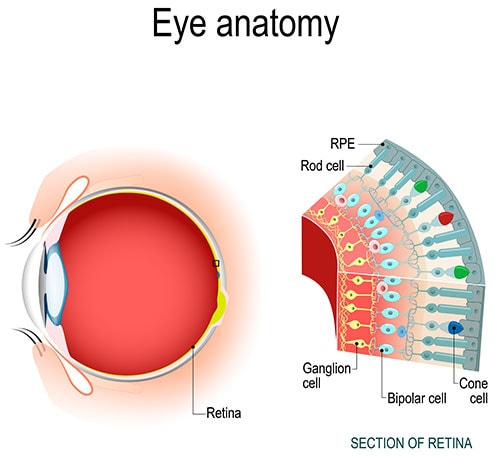All Categories
Featured
We frequently listen to regarding securing our skin from dangerous ultraviolet (UV) rays, however did you understand that UV exposure can also significantly affect your eye health and wellness? Whether you're outdoors on a bright day and even throughout cloudy weather condition, your eyes are continuously revealed to UV radiation. Prolonged exposure can enhance the threat of numerous eye problems, a few of which may result in long-term vision damages. Comprehending the results of UV rays on your eyes and exactly how to shield them is crucial for maintaining lasting eye wellness.
Sorts Of UV Rays. UV rays are classified into 3 kinds:
UVA Rays: These rays permeate deep into the skin and can additionally influence the inner layers of the eyes. UVB Rays: These rays mainly trigger damages to the skin's surface yet can likewise hurt the cornea and lens of the eye. UVC Rays: While these are one of the most harmful, they are largely soaked up by the Planet's atmosphere and don't get to the surface. Both UVA and UVB rays are unsafe to your eyes, and with time, exposure can cause significant eye problems.
Short-Term Results of UV Direct Exposure. Even quick exposure to intense UV rays can cause prompt eye damage. A common temporary problem is photokeratitis, usually described as "sunburn of the eye." Signs of photokeratitis consist of:
Redness and inflammation. Level of sensitivity to light. Tearing or watery eyes. An abrasive sensation, as if something is embeded your eye. While the signs of photokeratitis are temporary and normally fix within a day or more, repeated events can have collective impacts on your vision.
Long-Term Impacts of UV Direct Exposure. Persistent UV direct exposure can add to numerous major eye problems, including:
Cataracts: Over time, UV rays can trigger clouding of the eye's lens, resulting in cataracts, among the leading sources of loss of sight worldwide.
Macular Deterioration: Prolonged UV direct exposure can damage the retina, specifically the macula, bring about age-related macular deterioration (AMD), which affects central vision.
Pterygium: Also called "surfer's eye," this condition includes the development of a fleshy tissue on the white component of the eye, which can cross the cornea and influence vision.
Skin Cancer Around the Eyes: The delicate skin around the eyes is prone to UV radiation, boosting the threat of skin cancer, such as basic cell carcinoma.
Pinguecula: UV exposure can also lead to yellowish down payments on the conjunctiva, which can trigger inflammation and pain.
How to Secure Your Eyes from UV Rays. Put On Sunglasses with UV Security: Constantly choose sunglasses identified as obstructing 100% of UVA and UVB rays. Wrap-around styles supply extra protection by blocking UV rays from the sides.

Use a Wide-Brimmed Hat: Hats with a vast border can reduce UV direct exposure by approximately 50%, supplying additional coverage for your eyes and face.
Avoid Height Sun Hours: UV rays are toughest between 10 a.m. and 4 p.m. Restricting your outside activities throughout these hours can aid minimize exposure.
Do Not Fail To Remember Regarding Children: Kid's eyes are a lot more sensitive to UV rays, so guarantee they use sunglasses and hats when outdoors.
Put On UV-Blocking Contact Lenses: If you put on contacts, ask your eye care service provider about UV-blocking lenses for included security.
Keep Protected Year-Round: UV damages isn't limited to summer season; rays can reflect off surfaces like water, sand, and snow, making eye security required all year.
Final thought. Protecting your eyes from UV rays is important to maintaining your vision and total eye health and wellness. The impacts of UV direct exposure might not constantly be immediate, but they can accumulate in time, causing significant problems. By taking simple precautions like putting on UV-protective sunglasses, restricting exposure during peak hours, and consistently visiting an eye care professional, you can protect your eyes from the harmful impacts of UV radiation. Bear in mind, your eyes are irreplaceable-- take steps to secure them today.
Latest Posts
Elevate Your Home with Professional Home Siding Solutions
Why Pick Continual Panel Secure Fencing from Montana Fencing?
Leading Signs Your Roof Needs Upkeep or Substitute